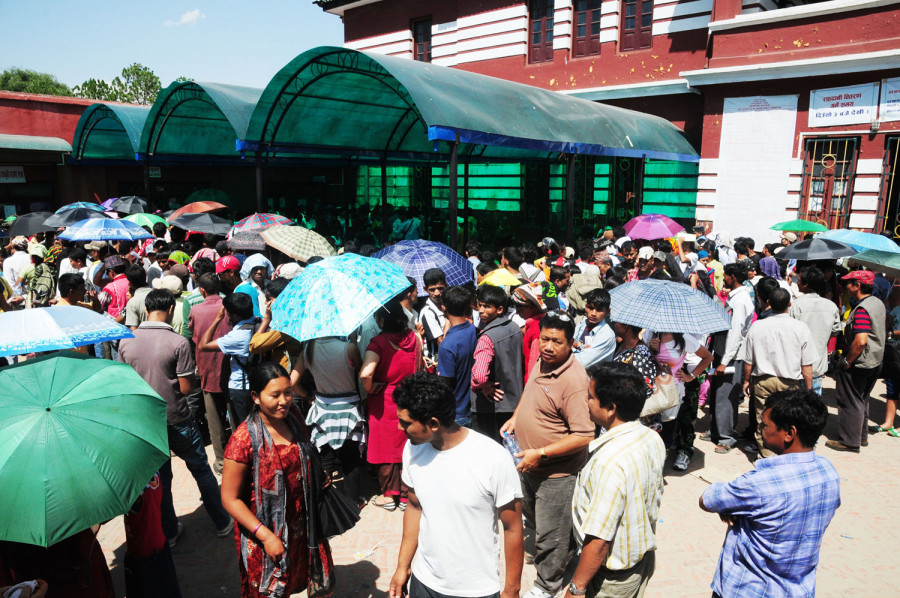National
Government anxious to find new vendor as passport numbers dwindle
After cancelling a previous bids, the government will now either call for expressions of interest from foreign firms or an entirely new global tender.
Anil Giri
After cancelling a tender at the last minute, the KP Sharma Oli administration is now considering either seeking proposals from interested parties or calling another global tender to print passports, along with other secure materials.
With just 700,000 passports in stock, government officials are scrambling to prevent a passport crisis. The Passport Department has been issuing around 3,000 passports every day since the end of festival season, according to department officials. If this rate continues, the department’s stock will last just seven or eight months. It will take at least nine months to contract a foreign firm to print and supply passports following the due process, according to officials.
“We have requested our diplomatic missions through the Ministry of Foreign Affairs to identify globally recognised security printing firms that can compete,” Dipak Subedi, secretary at the Ministry of Communication and Information Technology, told the Post. “We have also asked all relevant government ministries and departments to provide the exact number, size and specifications of the required passports, excise duty stickers, and postage stamps.”
Subedi is leading a panel called the Security Printing Development Committee, which consists of officials from various ministries and departments. The committee has received two separate financial and technical proposals from German and French firms, both expressing interests in setting up a security printing facility in Nepal.
“We will ask for fresh proposals from Germany and France and we will look into more proposals from interested international firms. Then we will present them at the Cabinet to begin negotiations,” said Subedi.
With stocks dwindling, the Passport Department had called for global tender, which was abruptly cancelled on orders from the prime minister at the last minute, on November 9. The government had decided then to procure passports directly from the firm that will secure the bid to set up a planned secure printing press in Banepa.
Nepal’s passports were previously supplied by the French company Oberthur Technologies. As per the 2010 agreement between the Department of Passports and Oberthur Technologies, the French firm would supply 4.5 million passports until 2015. However, due to the 2015 earthquakes, the government extended the contract to encompass another 2.5 million passports.
However, members of the Subedi-led panel are worried about delays in the negotiations process amid the looming passport crisis, as the government does not seem certain whether it will call for another global tender or will review proposals from interested firms.
“We do not have any option left,” said Suebdi. “We have to provide an alternative within another four to five months otherwise we will plunge into a crisis.”
Veridos Identity Solutions, a German governmental firm, had initially forwarded a proposal to the government to set up a secure printing press earlier this year, but Minister for Communication and Information Technology Gokul Baskota signed a memorandum of understanding with the French government to set up a security printing facility in March.
Once the passport tender was cancelled, government officials had claimed that they were going to sign a government-to-government deal with the France-based IN Groupe, which had offered a 200 million Euros soft loan at three percent interest rate. The group had offered to print banknotes and provide 1 million e-passports free of cost, after which it would charge $8 per passport.
But according to the officials familiar with both German and French proposals, the German proposal was more attractive than the French as Veridos is a bigger firm in terms of finances, global presence and operations. Similarly, the German soft loan and interest rate were lower than the French. Veridos had also assured Nepal that it would provide whatever interim passports the country needed immediately after signing the deal.
The German proposal also included banknote printing facilities, which the French proposal does not include, according to officials.




 9.83°C Kathmandu
9.83°C Kathmandu














